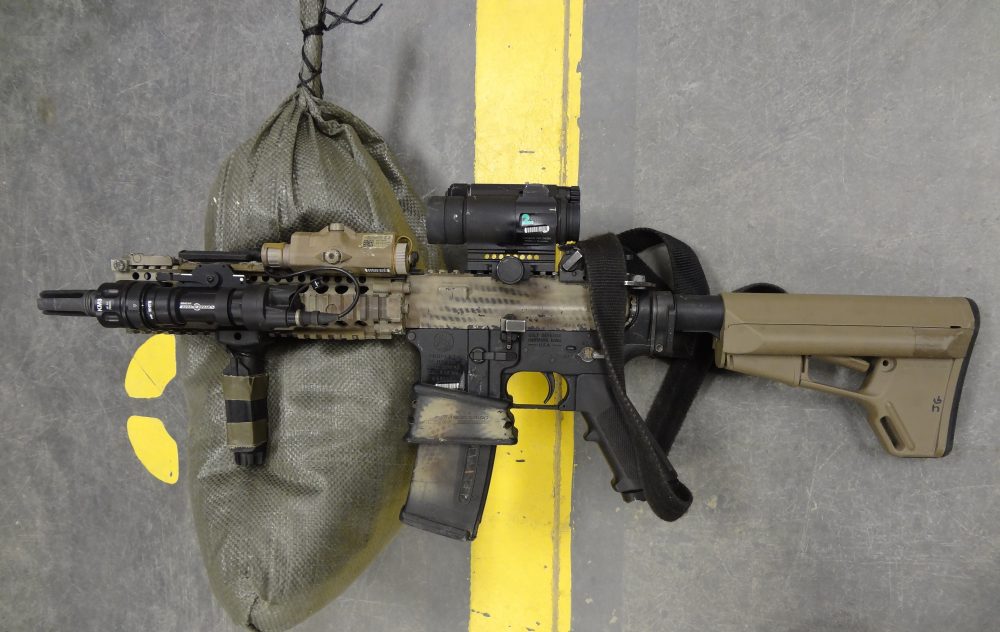This month, Street Smarts has scored an exclusive interview with Mr. Murphy, famous originator of an important natural law bearing his name. For those unaware, Murphy’s Law states, “If anything can go wrong, it will.”
We caught up with the busy member of Mythology as he was enjoying a lunch break away from his busy schedule in Washington, D.C.
SS: Thanks for taking time out to speak with us. We really feel this is an important interview for our readers because of your role in world events.
Murphy: Ahh, you’re welcome. Yes, I’m proud to say that through the years, my unassuming little decree has become one of the key factors affecting the outcome of everything from art projects to world wars.
SS: You say, “through the years.” Exactly how old are you?
Murphy: Well, I’m about 8,000 years old, give or take a decade.
SS: So what was the first known use of your law?
Murphy: It was during a planting ceremony in eastern Mesopotamia right after I had just been hired by The Fates. A guy named Cheopus was making a tribal goat sacrifice to the fertility god when I caused an eclipse. As they were stoning him to death, he wondered who had caused the sun to disappear. I thought that was pretty creative. So did The Fates; they’ve kept me around since then.
SS: So your law has been around basically forever.
Murphy: Yup. Everything from the Greeks whipping the Persians to that famous “Dewey defeats Truman” headline. Some of my favorites have been great military battles. Did you know that George Pickett wasn’t even the commander of “his” famous charge? I was working overtime that day and—
SS: If I may interrupt, much has been written about great military blunders but let’s change directions. Can you talk about your role in individual, small-scale incidents?
Murphy: Sure. In fact, that’s one of my favorite topics. It is certainly more newsworthy when I alter the course of history during a military or political job, but sometimes I like to kick back and do some grassroots work.
SS: For example?
Murphy: Oh, say a cop is going to deal with an armed robbery suspect later in the shift. I can see that coming; the cop won’t. On the chosen day, that officer is going to find out the hard way why he should have checked his gun before going on duty or made sure his portable radio was charged because I’m going to pay a little visit. My bosses upstairs decide if he passes the test.
SS: You hate cops?
Murphy: No! Hell, no! I like ‘em. It’s just that criminals get so much of my attention that once in a while I have to even the score. Otherwise, my supervisors get angry.
SS: So what should the good guys do?
Murphy: There are two things. First, they need to pay attention to the things under their control. Secondly, they need to be ready for everything else to go bad. You know, this goes for anything from baking a cake to warfare. If someone hasn’t taken me into consideration, they haven’t really prepared for their particular undertaking. In fact, this is as close to the Universal Truth as you will find.
SS: You know the Universal Truth?
Murphy: Sure. It was revealed to me during in-service training a couple thousand years ago. It’s a pretty good joke actually, but I can’t tell you anything else. I signed a non-disclosure statement.
SS: Back to our topic. Do you think most people under arms are prepared for your intervention?
Murphy: Well, it’s better than it used to be. There were always a few warriors, but lately more and more people are getting access to better training and equipment. Your magazine, for example, does a good job of getting information out there without resorting to more “.45 ACP versus 9mm” articles.
SS: Thanks. That’s a point of pride with us. Anyway, so you think that people are beginning to understand the importance of being ready to meet you?
Murphy: Let’s not get carried away.
SS: In closing, can you summarize the important points of our talk?
Murphy: We’ve already covered it. In fact, I read your columns and you hit it nearly every month. The good citizens, security personnel, emergency services personnel, cops and soldiers in your audience simply need to know that I’m going to show up at some point and make a mess of their plans.
Sometimes my visit is comical but sometimes things get nasty. The silly part is that most of the barriers I throw into the situation are things that somebody should have already foreseen. I rarely smash a meteorite into a dark alley where somebody is dealing with a junkie trying to steal his wallet.
More often, I just make sure there is loose gravel on the sidewalk or that their gun’s trigger jams because of some silly little attachment the owner added because it looked cool. Sometimes I get a little more aggressive and throw in something a bit tougher, like requiring an off-hand reload after a shooter gets shot in the hand.
I know such things seem a little harsh but, hey, I’ve got a job to do. It’s your readers’ job to try and out-maneuver me. Quite frankly, it’s not that tough. Yeah, sometimes I come up with that proverbial bolt out of the blue, but I’ve found that the simple stuff causes most headaches. Why should I go to the trouble of breaking a gun when all I have to do is make someone’s bootlace come untied?
Here’s the thing: even if I do toss out a really bizarre problem, a well-prepared person should be ready to handle the whole thing in stride anyway.
SS: Thanks for your time.
Murphy: You’re welcome. I’ve enjoyed myself; in fact, let me just say that you might watch it when you cross the street in Las Vegas next month.
SS: Huh???




